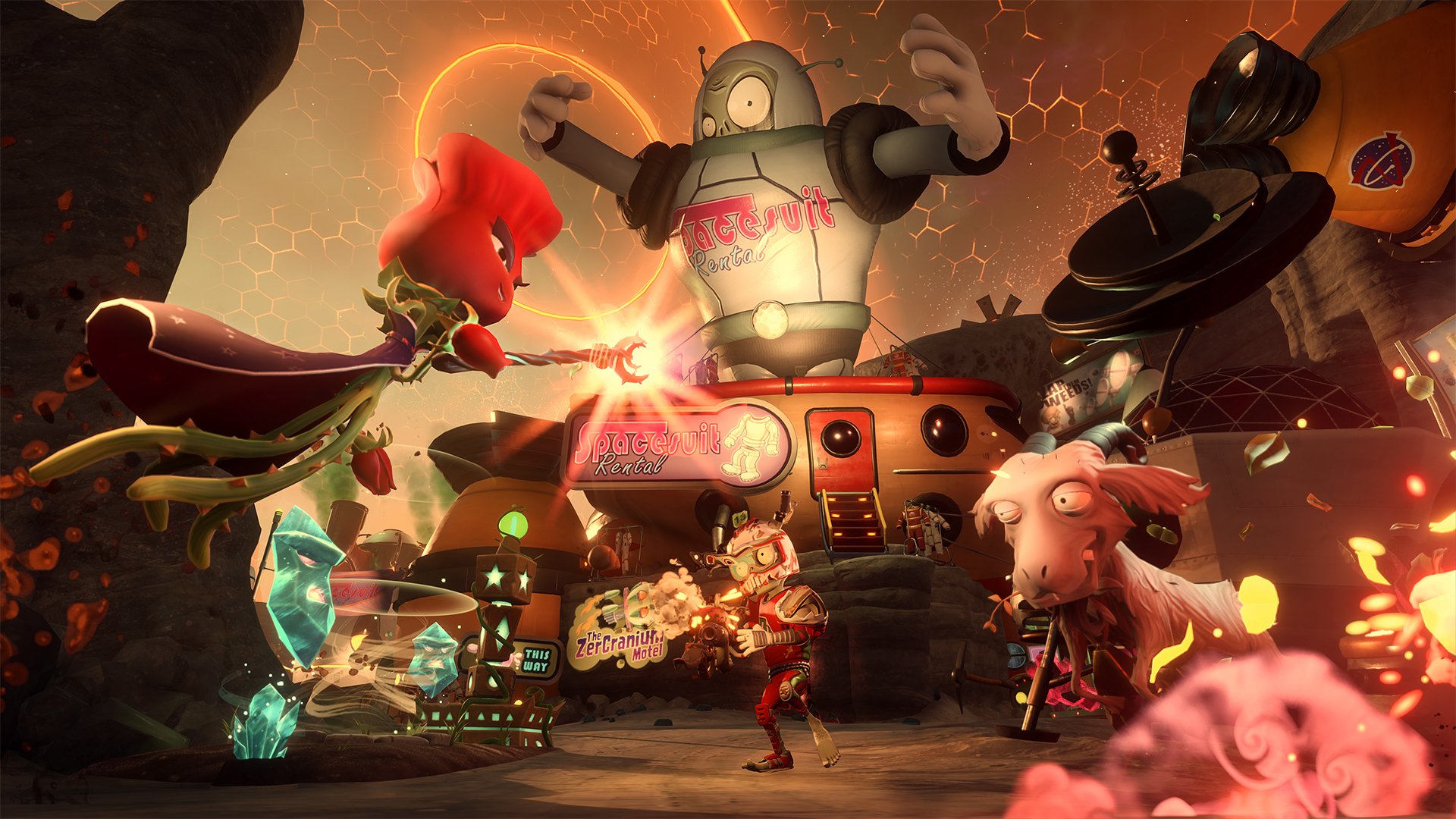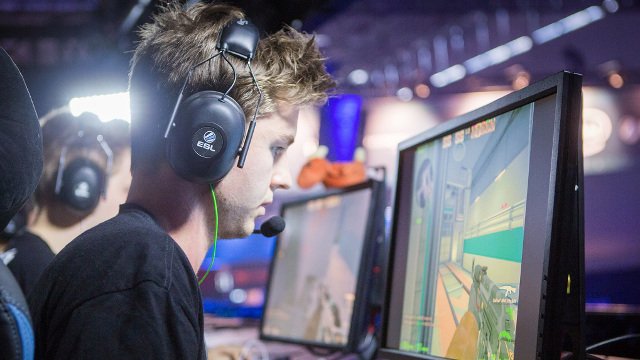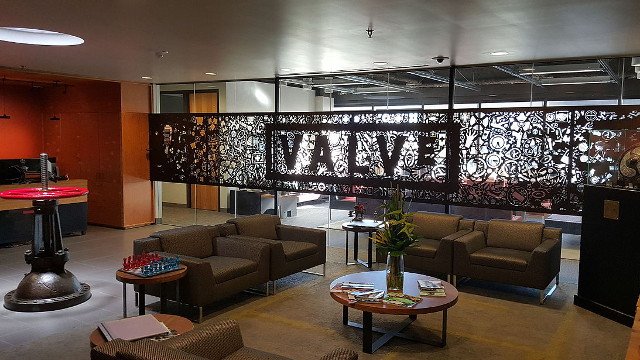Creating a service has become commonplace for developers of multiplayer-focused shooters, the days of seeing a finalized product ship to store shelves are behind us. Teams still work to add new modes, characters, weapons, and other goodies long after players have jumped in with guns blazing.
But with each new tidbit of content added to these shooters, the balance between weapons, maps, and characters gets thrown off, leaving the developers to steady an increasingly unstable ship. It’s a delicate act that involves a lot of testing, data, and community interaction in order to be successful.
“We continue to tweak the multiplayer long after the games release, that’s a low cost output we can support,” said Plants vs. Zombies: Garden Warfare Creative Director Justin Wiebe when speaking to GameRevolution. “We listen to the fans and make some small changes and the QA tests those changes before they go out.”
Putting together new content is no simple task, but the real work starts after new content is finished and released. Since adding new elements can throw the multiplayer equilibrium into disarray, even after extensive testing with the developer and quality assurance teams. There’s no sure fire way to make sure a good balance remains after introducing new variables to the online environment, without adding more patches afterwards.

Most developers rely on player data to gauge what types of changes need to be made. For example, seeing what characters have been picked the most can help determine what needs a nerf. “We prefer at least a month of data to make sure things aren’t skewed. Sometimes certain elements can affect data, like new players making the average number of deaths go down”, said Wiebe.
Using data alone can lead to misinterpretations of different play styles, resulting in changes that leave a bad taste in the communities mouth.
We prefer at least a month of data to make sure things aren’t skewed.
In the case of Plants vs Zombies: Garden Warfare, Wiebe and team saw that players using the Camo Cactus class weren’t dying nearly as much as other classes. They then reduced the Camo Cactus’s damage and ammo count, which didn’t sit well with players.
“It turns out we didn’t read the talemetry correctly,” stated Wiebe. “The nature of the character means that they hang back and die less often, and that skewed the data and caused us to read that wrong.”

Wiebe listened to Garden Warfare community leaders, realizing they had made a mistake in nerfing the succulent sniper. It serves as a good example of how important community feedback is to keep these multiplayer spaces fair. Luckily, developers of most shooters, including Plants vs. Zombies: Garden Warfare, rely on community feedback to assess balance after new changes are added.
But what happens when the relationship between the community and development team isn’t a priority?
“Each update pushed essentially breaks any system in place for playing competitive matches,” said professional CS: GO player Taylor Johnson. “It causes massive delays and completely destroys [competitions] that are scheduled weeks in advance.”
Counter Strike: Global Offensive is one of the most popular competitive shooters out there with hundreds of thousands of active players on Steam, and yet each update brings new issues. “They introduce something completely imbalanced without proper testing beforehand,” Johnson said. “It throws the entire balance of the game sideways for a few days while tweaks are made.”

The problem isn’t limited to the fact that each update gets more wrong than it does right, it’s also the fact that Valve hardly communicates anything they’re about to change. “There is no communication,” said former FNATIC CS: GO coach Viktor Jendeby. “I know they look a lot at statistics from the game, trying to do adjustments for both the competitive and casual scene.”
Even though the community is huge, no specific place is utilized to interact directly with the players. Johnson shared, “The only real central space that I think feedback is given is via the subreddit. Community driven forums are the only place I know of that feedback is really centralized and none of those places are affiliated officially with Valve or the CS: GO team at all.”
Beyond that, the relationship between players and Valve isn’t where it needs to be. “Occasionally you’ll get a comment from a member of the dev team but it’s a rarity,” Johnson said. “They don’t tend to work with anyone to warn of game updates and changes.”
The lack of consistent balance is something CSGO players have to deal with often, since little has changed in the game’s lifespan. And most dedicated players don’t expect that to change. Striking a balance in a shooter makes it easier to play and build competitions around, so Valve isn’t doing itself any favors by ignoring the community. Their lucky that so many players are willing to put up with lack of consistent balance.











